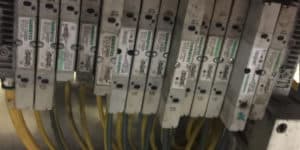Automation Glossary: Fieldbus Communication
What Is Fieldbus Communication?
Fieldbus communication is a digital industrial network specifically designed to connect various devices and instruments within automation systems commonly found in industrial facilities or large-scale buildings. This technology enables the standardized exchange of data and control signals between different devices, such as sensors, actuators, and controllers, allowing them to communicate seamlessly. By doing so, fieldbus enhances the overall efficiency, flexibility, and reliability of the automation system, leading to improved performance, simplified installation, and easier maintenance. Its ability to support real-time communication and diagnostics also helps reduce downtime and operational costs in complex industrial environments.
What Is Fieldbus Communication Used For?
Industrial Automation:
- Process Control: Fieldbus communication enables the integration of sensors, actuators, and controllers within process industries such as oil and gas, chemicals, and pharmaceuticals. This integration ensures accurate regulation of critical parameters, including temperature, pressure, and flow rates.
- Manufacturing: In manufacturing, fieldbus networks link PLCs, sensors, and actuators to streamline production processes, boost operational efficiency, and improve quality assurance. Fieldbus technology is also used to manage robotic systems, conveyors, and other automated machinery, increasing precision and productivity in manufacturing operations.
Additional Applications:
- Power Generation: Fieldbus is often used in power plants to oversee and control essential equipment, such as turbines, generators, and boilers, ensuring reliable and efficient operation.
- Water and Wastewater Treatment: Fieldbus networks automate and optimize water treatment processes, increasing efficiency and minimizing environmental impact.

Related Terms
Further Reading







